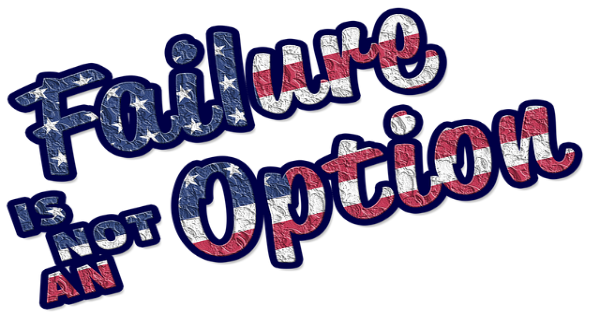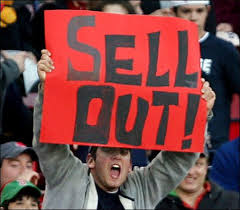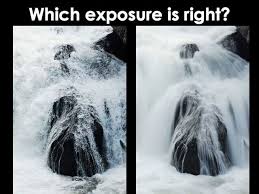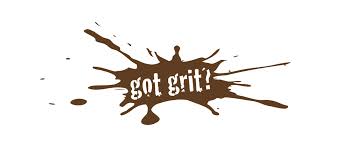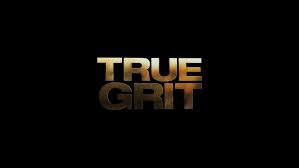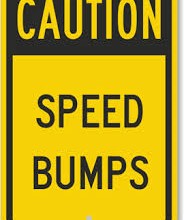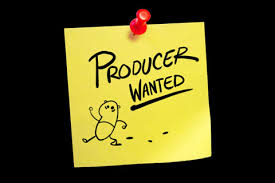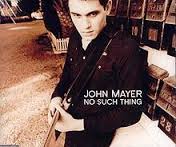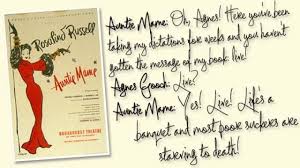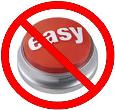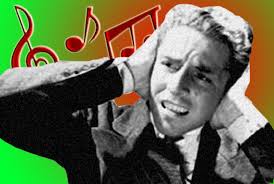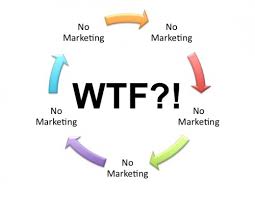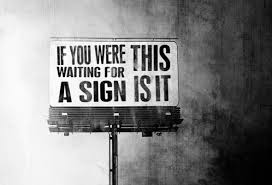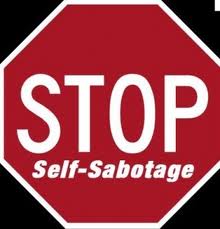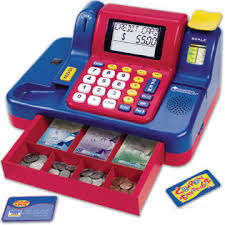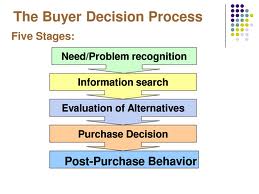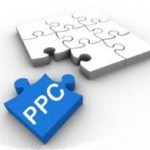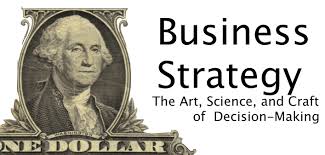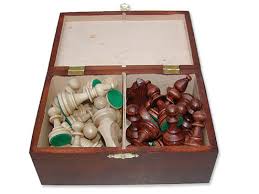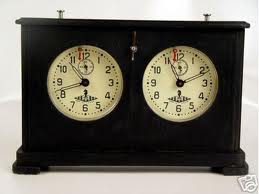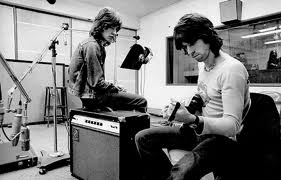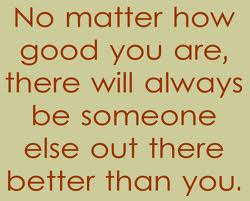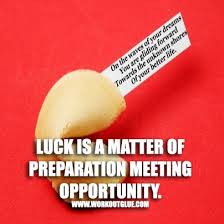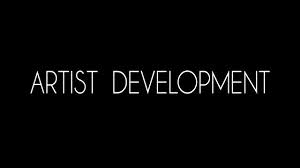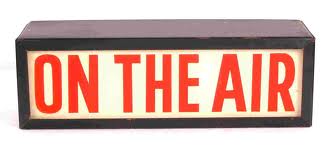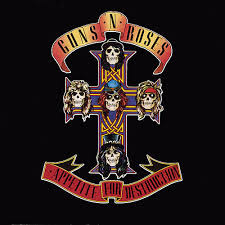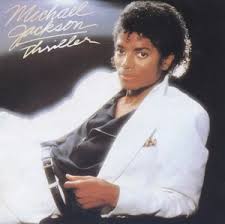By Johnny Dwinell
D.I.Y.
I am really beginning to disdain the term D.I.Y. (Do It Yourself). It should be rephrased to say what it really means which is “do it without a record label” because nobody does it themselves; which makes that term extremely  misleading. That’s worth repeating, NOBODY makes a living in the music industry all by their lonesome so DIY is misleading. Let’s break that down some more. In today’s music business YOU are responsible for your development as an artist, as an act, as a business; therefore, YOU are responsible for your own team building. Maybe we should change DIY to BYOT (Build Your Own Team) or DYOA (Develop Your Own Ass) LOL. Since YOU are responsible for ultimately taking yourself from obscurity to a place where you are making a living in the music industry (either as a writer, musician, or artist) the smart people are going to look at the professional approaches that the major labels took to developing acts and try to recreate it. After all, these methods were effective, yes?
misleading. That’s worth repeating, NOBODY makes a living in the music industry all by their lonesome so DIY is misleading. Let’s break that down some more. In today’s music business YOU are responsible for your development as an artist, as an act, as a business; therefore, YOU are responsible for your own team building. Maybe we should change DIY to BYOT (Build Your Own Team) or DYOA (Develop Your Own Ass) LOL. Since YOU are responsible for ultimately taking yourself from obscurity to a place where you are making a living in the music industry (either as a writer, musician, or artist) the smart people are going to look at the professional approaches that the major labels took to developing acts and try to recreate it. After all, these methods were effective, yes?
You Are Responsible For Your Artist Development
So let’s look at how to recreate it. The good news is it’s easier than ever to recreate it. The bad news is YOU have to recreate it; YOU have to recreate some kind of development pipeline to ensure that you are competing at a professional level. Common sense very simply says that if you do not approach your career this way than you are NOT competing at a professional level; which means you’re an amateur. This, in turn, means you suck and you make no money. Btw, if you think that EVERY artist who signs a major label deal isn’t dealing with this conversation right here, you’re delusional. Welcome to the music business.
YOU need to ensure that your songs are simply incredible.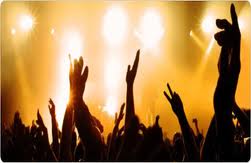
YOU need to ensure that your recordings are simply incredible.
YOU need to ensure that your live show is simply incredible.
Then you need to ensure that you have a marketing pipeline and you are moving product. If the song and the recording are really INCREDIBLE people WILL respond. It’s that simple (did u like my word structure there?).
THIS EFFORT is going to require a team. I cannot think of one artist EVER in the history of the music business that did it all themselves. They had mentors; they were surrounded by people who were better than they were that showed them the ropes. YOU need to do the same. YOU are green, let’s face it. I mean GREEEEEN. I don’t care how long you have been playing, have you done 30 shows in a row; in 30 days? No? Then you’re GREEN. Your live show will transform after an effort like that. Do you have any hit singles? No? Then you’re GREEN. Do you have any Cuts? No? Then you’re GREEN. Everybody starts out green. John Lennon and Paul McCartney admit that their first 150 songs or so SUCKED; they were figuring it out, man. Then the Beatles went to Hamburg where they played 8 HOURS A DAY for MONTHS to get their 10,000 hours because they were GREEN. The Rolling Stones first 3 singles were cover tunes because they were GREEN. Their first 2 records were mostly cover tunes because they were GREEN; it wasn’t until they wrote “Last Time” and it became a single that they even thought they could really write well!
If you really want to be a serious artist, you better dive into these records and LISTEN to the development so you can get a real 30,000 foot perspective on what your mission is as an artist with regards to the ART. This task will help you grow.
It will give you validation that #1 you can do this, and #2 you have a lot of work to do but it CAN BE DONE!
All artists need to be developed; they need to be encouraged and inspired to mature. Inspiration comes in many forms, but as a former artist, I can tell you that oftentimes when it comes it takes the form of someone pushing you beyond your comfort zone and it tends to PISS YOU OFF. Jesus, did I get wound up sometimes, but the people pushing me were right; if I wasn’t uncomfortable then I wasn’t trying anything new, which means I wasn’t growing.
If you’re not growing you’re not serious; period.
Don’t get comfortable.
Let’s take Bruce Springsteen for example. His big record was “Born to Run” which was his third record. Most  people don’t remember the first 2 records which were “Greetings from Asbury Park, N.J.” and “The Wild the Innocent & the E Street Shuffle”. Most people DO remember Manfred Mann’s Earth Band #1 hit “Blinded by the Light” which was written by Bruce Springsteen and appeared on the “Greetings from Asbury Park, N.J.” record. I remember listening to an interview with the singer from Manfred Mann where he was asked why he stopped covering Bruce Springsteen songs (they also did a version of “Spirit in the Night”) and he said that after the 2nd record, Bruce had gotten so good at the writing he really couldn’t mess around with the songs and make them better anymore. BTW, Bruce wrote “Blinded by the Light” and “Spirit in the Night” AFTER he submitted his first record to the label and Columbia said “go back and write some songs that can be played on the radio SO YOU CAN COMPETE PROFESSIONALLY” (pushing him out of his comfort zone). He was forced to play ball or lose his deal. Are you approaching your career this way? I encourage you to go and listen to the first 2 Springsteen records and write down the lyrics and then see for yourself how he gets it right on the 3rd record; he developed. BTW, the second verse of “Blinded by the Light” was all about his frustration with getting people in the bars to pay attention to him during his performances proving that he didn’t walk onstage for the first time as a ROCK GOD; he developed. Similarly, check out the first 2 Bon Jovi records and compare them to the 3rd record “Slippery When Wet”. The difference is Polygram (his record label) understood his raw talent and put him with a hit songwriter named Desmond Child to improve the quality of the songs on the 3rd record; consequently Bon Jovi, Sambora, and Child co wrote “You Give Love a Bad Name” and “Livin’ on a Prayer”. These became the 1st 2 singles for the record and they would both go to #1.
people don’t remember the first 2 records which were “Greetings from Asbury Park, N.J.” and “The Wild the Innocent & the E Street Shuffle”. Most people DO remember Manfred Mann’s Earth Band #1 hit “Blinded by the Light” which was written by Bruce Springsteen and appeared on the “Greetings from Asbury Park, N.J.” record. I remember listening to an interview with the singer from Manfred Mann where he was asked why he stopped covering Bruce Springsteen songs (they also did a version of “Spirit in the Night”) and he said that after the 2nd record, Bruce had gotten so good at the writing he really couldn’t mess around with the songs and make them better anymore. BTW, Bruce wrote “Blinded by the Light” and “Spirit in the Night” AFTER he submitted his first record to the label and Columbia said “go back and write some songs that can be played on the radio SO YOU CAN COMPETE PROFESSIONALLY” (pushing him out of his comfort zone). He was forced to play ball or lose his deal. Are you approaching your career this way? I encourage you to go and listen to the first 2 Springsteen records and write down the lyrics and then see for yourself how he gets it right on the 3rd record; he developed. BTW, the second verse of “Blinded by the Light” was all about his frustration with getting people in the bars to pay attention to him during his performances proving that he didn’t walk onstage for the first time as a ROCK GOD; he developed. Similarly, check out the first 2 Bon Jovi records and compare them to the 3rd record “Slippery When Wet”. The difference is Polygram (his record label) understood his raw talent and put him with a hit songwriter named Desmond Child to improve the quality of the songs on the 3rd record; consequently Bon Jovi, Sambora, and Child co wrote “You Give Love a Bad Name” and “Livin’ on a Prayer”. These became the 1st 2 singles for the record and they would both go to #1.
You get my point here? YOU ARE NO DIFFERENT THAN YOUR FAVORITE WRITERS! The question is what are YOU doing to behave like the record label? What are YOU doing to surround yourself with people that are BETTER THAN YOU so you can improve?
WTF ARE YOU DOING TO DEVELOP?
I mean you’re smart, right? So why would you approach your music any different than, say, a construction gig? You have a vague or naïve idea of how to properly frame a door but somebody on the site shows you EXACTLY 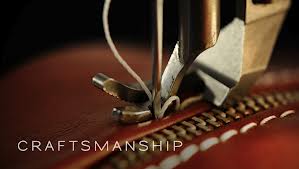 how to do it; there are tricks to getting it right, there is an art behind crafting that door frame flawlessly. The first day on the job you suck, but then you learn and get better as you acquire knowledge. Music is no different; songwriting is a CRAFT! NOBODY is born a great songwriter. They are born with a need to be artistic and are TAUGHT not to settle for shit. They are TAUGHT not to be lazy! I remember reading an interview with the great Joni Mitchell where she described how she took her songs to her parents and they would say “That’s great, baby, now go back and figure out a different way to say it; make it better” So make sure you are trying to get with craftsmen to learn the trade! If you feel like you have nothing to learn than you have already failed. Most of you KNOW you have a lot to learn but you’re scared; get over it! It’s a full contact sport!
how to do it; there are tricks to getting it right, there is an art behind crafting that door frame flawlessly. The first day on the job you suck, but then you learn and get better as you acquire knowledge. Music is no different; songwriting is a CRAFT! NOBODY is born a great songwriter. They are born with a need to be artistic and are TAUGHT not to settle for shit. They are TAUGHT not to be lazy! I remember reading an interview with the great Joni Mitchell where she described how she took her songs to her parents and they would say “That’s great, baby, now go back and figure out a different way to say it; make it better” So make sure you are trying to get with craftsmen to learn the trade! If you feel like you have nothing to learn than you have already failed. Most of you KNOW you have a lot to learn but you’re scared; get over it! It’s a full contact sport!
Artist Development Requires Mentorship
If you want to be professional (which means if you want to make your living at it) you need to work with professionals.
So why aren’t you? Where do the professionals live? Why aren’t you living there? I’m sure you all have many reasons why you are not doing these things and the harsh reality is that they are all excuses. My dad always said “excuses are like assholes, everyone has one and they all stink”. Maybe they are valid excuses but valid excuses are still excuses. If you are going to be professional you better get rid of the excuses as these are just reasons to get in your own way; these are reasons not to do a good job. I have so much respect for our artists like Tanya Marie Harris and Neill Skylar. Both of these ladies have young children (less than 3 years old) and STILL they FIND A WAY to come to Nashville and get it done right!! This is what it’s all about, people, doing it RIGHT! These girls are on a freakin mission, man, make NO MISTAKE ABOUT IT!!! Sheesh, I’m just glad they’re on our side! LOL
We now have established that you need to seek professional mentors to help you grow as a songwriter. Let’s face it; it all starts with the song. It amazes me how many people feel like if they record a shitty song better that it will make the song better; clearly not true.
Your next task is to then take these incredible songs that COMPETE with all the songs you love in your genre and record them properly. Recording them properly requires a killer engineer and producer (sometimes they are both but beware sometimes engineers are ONLY engineers with no artistic input whatsoever.) YOU are responsible for finding your team.
The team is more important than the studio.
 This is true because you are taking your songs and creating a product with them; whether you like that reality or not. If your product is 2nd rate, nobody is going to care; you won’t sell anything. If you don’t sell anything you won’t make a living; so you have a vanity project. Your team will help you decide what songs make the record which means they have the unwelcome task of telling you, the artist, which songs aren’t cutting it. Your team will help you define your sound and your lane. They will help you decide what keys to record those songs in; keys that are appropriate for your voice and put you in the best light. Your team will then cast the appropriate players to deliver the sound that everyone has agreed upon. Your team should be enthusiastic towards your project; if they are not you have a problem. Nashville is full of burnt out players with great studios who will take your money to press the record button and that’s it. Nashville is full of people who don’t care about the product anymore; so, I must imagine that everywhere else is the same, either they don’t care about it or they don’t know how to do it right in the first place. YOU have to find someone that IS enthusiastic; who really cares!
This is true because you are taking your songs and creating a product with them; whether you like that reality or not. If your product is 2nd rate, nobody is going to care; you won’t sell anything. If you don’t sell anything you won’t make a living; so you have a vanity project. Your team will help you decide what songs make the record which means they have the unwelcome task of telling you, the artist, which songs aren’t cutting it. Your team will help you define your sound and your lane. They will help you decide what keys to record those songs in; keys that are appropriate for your voice and put you in the best light. Your team will then cast the appropriate players to deliver the sound that everyone has agreed upon. Your team should be enthusiastic towards your project; if they are not you have a problem. Nashville is full of burnt out players with great studios who will take your money to press the record button and that’s it. Nashville is full of people who don’t care about the product anymore; so, I must imagine that everywhere else is the same, either they don’t care about it or they don’t know how to do it right in the first place. YOU have to find someone that IS enthusiastic; who really cares!
FYI, there are hundreds of producers on Twitter, Facebook, Google, etc. Find one that you feel good about!
Yes, you have to pay for a team like this, but you get what you pay for. You have to ask yourself what your goals are. If you wanna do something epic, then you’re gonna have to shell out a few bucks. If you wanna cut corners you’re recording nothing more than a vanity project. That’s ok as long as you are aware that it’s a vanity project. The trouble starts when everyone wants to put their vanity project up for sale; a half-assed effort at best. Then they wonder why they aren’t getting any traction. Don’t try and swim in professional circles with that shit, because whether you can hear it or not is irrelevant; the pros can hear the difference and you look like a tool. Imagine the NASCAR driver who wants to tell everyone he’s amazing at racing and shows up to the NASCAR race with a rusted out baby-blue Dodge Dart because that’s all he wanted to afford. He looks like an idiot because he brought a little knife to a gun fight, ya know?
You more than likely have a job right now and you’re good at it I’ll bet, just imagine how you feel about people who come into your workplace and simply don’t get what you do or what they have to do to get it right. How do you feel about them? Yeah, yeah, you may say “I would help them out”. Maybe that’s your job is training people. Labels, publishers, managers, bloggers, everyone in the professional music industry gets HUNDREDS of submissions a day, so “Helping them all out” is quite impossible. So you pass because “they aren’t ready”.
You wanna be a pro, then look like a pro, sound like a pro, and show up with a professional product and behave like a professional. Take your time looking for your team. Don’t just take the first guy down the street who has a pro-tools rig and make him your producer. LISTEN to what he has recorded in the past. Find out what lengths he’s willing to go to make something amazing. Make SURE he/she is enthusiastic!!
I remember my 1st recording experience in Milwaukee, WI when I was in High School. We would finish a take and ask the engineer, “how was that?” He would respond, “Did you think it sounded good?” We would say, “Fuck yeah! We’re awesome!” We were really good but we were green. We didn’t know. There was reverb on the bass guitar for  God’s sake!!! I remember taking these recordings to LA to get them professionally mixed because WE WANTED TO BE GOOD. I remember the producers I used had mixed Black & Blue, and The Vinnie Vincent Invasion along with some other major label records. I remember making a killer deal on the phone for a flat rate to mix 3 songs (those cost a fortune back then FYI, there was no Pro Tools) and those guy saying, “How bad could it be?” I remember hanging in the lounge of Baby ‘O’ Recorders on Sunset next to David Hasselhoff who was also recording there. I remember them coming out of the studio PISSED because there was reverb on the bass LOL. So embarrassing!! I’m quite sure they didn’t make any money off of me, because it took forever to clean up our stupid mistakes. They did it though. Our recording was kick ass! We ended up getting tons of spins on a local radio station that played the real heavy stuff. We sounded better than most of the other crap they were playing. You get it?
God’s sake!!! I remember taking these recordings to LA to get them professionally mixed because WE WANTED TO BE GOOD. I remember the producers I used had mixed Black & Blue, and The Vinnie Vincent Invasion along with some other major label records. I remember making a killer deal on the phone for a flat rate to mix 3 songs (those cost a fortune back then FYI, there was no Pro Tools) and those guy saying, “How bad could it be?” I remember hanging in the lounge of Baby ‘O’ Recorders on Sunset next to David Hasselhoff who was also recording there. I remember them coming out of the studio PISSED because there was reverb on the bass LOL. So embarrassing!! I’m quite sure they didn’t make any money off of me, because it took forever to clean up our stupid mistakes. They did it though. Our recording was kick ass! We ended up getting tons of spins on a local radio station that played the real heavy stuff. We sounded better than most of the other crap they were playing. You get it?
STOP telling yourself why it won’t work and START asking, “What has to happen to make this a reality?”
Henry Ford stated “There’s a man who thinks he can and a man who thinks he can’t. Both men are right. Which man are you?
All I’m saying is if it’s worth doing, it’s worth doing right. Let me save you the suspense, you are going to screw it up; but you will LEARN. Get in there and MAKE IT HAPPEN!
Be fearless!!
Please SHARE if you like this post!
[ois skin=”Bottom Post”]
 cooking spaghetti; you throw it against the wall…if it don’t stick…KEEP COOKING! In other words, we EXPECT a certain level of failure to achieve success! We EXPECT pot holes, pitfalls, challenges, and huge hurdles, and we RELY on them to get us one step closer to greatness!
cooking spaghetti; you throw it against the wall…if it don’t stick…KEEP COOKING! In other words, we EXPECT a certain level of failure to achieve success! We EXPECT pot holes, pitfalls, challenges, and huge hurdles, and we RELY on them to get us one step closer to greatness! HAPPY to point out these failures! Knowing this, we need to shift our energy away from WORRYING about failing to LEARNING from the INEVITABLE mistakes and moving forward!
HAPPY to point out these failures! Knowing this, we need to shift our energy away from WORRYING about failing to LEARNING from the INEVITABLE mistakes and moving forward!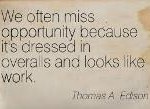 “We often miss opportunity because it’s dressed in overalls and looks like workâ€
“We often miss opportunity because it’s dressed in overalls and looks like workâ€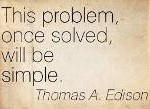
 “Hell! there ain’t no rules around here! We are tryin’ to accomplish somep’n!â€
“Hell! there ain’t no rules around here! We are tryin’ to accomplish somep’n!â€
